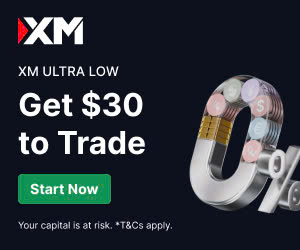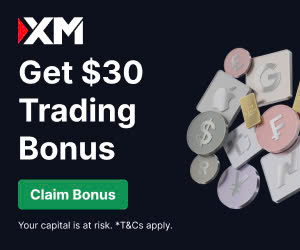
10 minute read
Is XM Legal in Turkey? A Comprehensive Review
The forex trading industry has seen tremendous growth globally, and Turkey is no exception. With its dynamic economy and increasing interest in financial markets, Turkish traders are actively seeking reliable brokers to participate in forex and CFD trading. One broker that frequently comes up in discussions is XM, a globally recognized platform with a strong reputation. But a critical question remains for Turkish traders: Is XM legal in Turkey? In this comprehensive review, we’ll explore XM’s legality, safety, regulatory framework, trading conditions, and more to help you decide if XM is the right choice for your trading needs in Turkey.

💥 Trade with XM now: Open An Account or Visit Brokers 🏆
Understanding XM: A Global Forex Broker
XM, established in 2009 and headquartered in Belize, is a well-known forex and CFD broker operating in nearly 190 countries, serving over 10 million clients worldwide. The broker offers access to over 1,000 trading instruments, including forex pairs, stocks, commodities, cryptocurrencies, and precious metals. XM is celebrated for its user-friendly platforms (MetaTrader 4 and MetaTrader 5), low minimum deposits, and competitive trading conditions, such as spreads starting from 0.0 pips and leverage up to 1:1000.
For Turkish traders, XM’s appeal lies in its accessibility, Turkish-language customer support, and features like Islamic (swap-free) accounts, which cater to the predominantly Muslim population. But before diving into trading with XM, it’s essential to understand its legal status in Turkey and whether it meets the regulatory standards required for safe trading.
Forex Trading in Turkey: The Legal Landscape
Forex trading is legal and well-regulated in Turkey, with the Capital Markets Board of Turkey (CMB), known as Sermaye Piyasası Kurulu (SPK) in Turkish, serving as the primary regulatory authority. The CMB oversees the securities and financial markets, ensuring brokers comply with strict guidelines to protect traders. Key regulations include:
· Licensing Requirements: Brokers operating in Turkey must have a physical office in the country and obtain a license from the CMB.
· Leverage Restrictions: The CMB imposes a maximum leverage of 1:10 for forex trading to minimize risks for retail traders.
· Investor Protection: Licensed brokers must segregate client funds from company funds and adhere to transparency standards.
While these regulations create a secure environment, they also make it challenging for international brokers to obtain a CMB license. Many global brokers, including XM, operate in Turkey under their international licenses, which raises questions about their legality and safety.
Is XM Legal in Turkey?
The short answer is yes, XM is legal in Turkey. However, there’s a nuance to this answer that requires clarification. XM does not hold a license from the CMB, meaning it does not operate under Turkey’s local regulatory framework. Instead, XM operates in Turkey through its global entity, XM Global Limited, which is regulated by the Financial Services Commission (FSC) in Belize, with additional licenses from top-tier regulators such as:
· Australian Securities and Investments Commission (ASIC) in Australia
· Cyprus Securities and Exchange Commission (CySEC) in Cyprus
· Dubai Financial Services Authority (DFSA) in the UAE
· Financial Sector Conduct Authority (FSCA) in South Africa
The CySEC license, in particular, aligns XM with the European Union’s MiFID II directive, which enforces strict standards for client fund protection, transparency, and fair trading practices. These regulations ensure that XM maintains segregated client accounts in European banks, separate from its operational funds, providing an additional layer of security.
While XM’s lack of a CMB license means it doesn’t meet Turkey’s local regulatory requirements, there are no explicit restrictions imposed by Turkish authorities preventing traders from using XM’s services. Turkish traders can legally trade with XM under its global entity, provided they understand the implications of trading with a non-locally regulated broker.
Is XM Safe for Turkish Traders?
Safety is a top concern for any trader, and XM’s regulatory framework and operational practices make it a trustworthy option. Here’s why XM is considered safe for Turkish traders:
1. Multi-Tier Regulation
XM’s licenses from ASIC, CySEC, DFSA, FSCA, and FSC demonstrate its commitment to adhering to international standards. These regulators enforce rigorous rules, such as:
· Client Fund Segregation: XM keeps client funds in separate accounts, ensuring they are not used for the company’s operational expenses.
· Negative Balance Protection: This feature protects traders from losing more than their account balance, a critical safeguard in volatile markets.
· Regular Audits: XM undergoes regular audits to ensure compliance with regulatory standards.
2. Transparent Operations
XM provides clear information about its legal entities, registration details, and licenses on its official website. This transparency builds trust and allows traders to verify the broker’s credentials with the respective regulatory authorities.
3. Investor Compensation Fund
Under its CySEC regulation, XM participates in the Investor Compensation Fund (ICF), which offers up to €20,000 in compensation to clients in the unlikely event of the broker’s insolvency. While this applies primarily to clients under the CySEC-regulated entity, it adds an extra layer of security.
4. No Hidden Fees
XM is known for its transparent fee structure. The broker covers all commission costs for deposits and withdrawals, and there are no hidden charges on its accounts. Spreads start as low as 0.0 pips on the XM Zero account, making it cost-effective for active traders.
5. Robust Security Measures
XM employs advanced encryption and security protocols to protect clients’ personal and financial data, ensuring a secure trading environment.
While XM’s global regulation makes it a reliable choice, traders should note that disputes with a non-CMB-licensed broker may require resolution through international regulators or courts, which can be more complex than dealing with a locally licensed broker.

💥 Trade with XM now: Open An Account or Visit Brokers 🏆
XM’s Trading Conditions for Turkish Traders
XM offers a range of features tailored to Turkish traders, making it an attractive option for both beginners and professionals. Here’s a breakdown of what you can expect:
1. Account Types
XM provides three main account types to suit different trading styles:
· Micro Account: Ideal for beginners, with a minimum deposit of $5 and micro-lot trading.
· Standard Account: Designed for professional traders, with a $5 minimum deposit and standard lot sizes.
· XM Zero Account: Offers ultra-low spreads (from 0.0 pips) with a $5 minimum deposit, suitable for scalpers and high-frequency traders.
Additionally, XM offers Islamic accounts (swap-free) for Muslim traders, ensuring compliance with Sharia law by eliminating overnight interest charges.
2. Trading Platforms
XM supports MetaTrader 4 (MT4) and MetaTrader 5 (MT5), both available in web, desktop, and mobile versions. These platforms are industry standards, offering advanced charting tools, automated trading capabilities (via Expert Advisors), and Turkish-language support. XM also provides VPS hosting for low-latency trading and the MT4 Multiterminal for managing multiple accounts simultaneously.
3. Leverage and Trading Instruments
While XM offers leverage up to 1:1000 globally, Turkish traders may face restrictions due to local regulations. The CMB caps leverage at 1:10 for locally regulated brokers, but XM’s global entity allows higher leverage, which can be both an opportunity and a risk. Traders can access over 1,000 instruments, including:
· Forex pairs (major, minor, and exotic)
· Stocks and stock indices CFDs
· Commodities (gold, silver, oil)
· Cryptocurrencies (Bitcoin, Ethereum, etc.)
· Precious metals and energies
4. Payment Methods
XM supports over 25 payment methods, including:
· Bank Wire Transfers
· Credit/Debit Cards (Visa, MasterCard)
· E-Wallets (Skrill, Neteller)
Deposits and withdrawals are processed quickly, often instantly, and XM covers all transaction fees, making it cost-effective for Turkish traders.
5. Customer Support
XM offers 24/5 customer support in over 30 languages, including Turkish. Traders can reach support via live chat, phone, or email, ensuring prompt assistance for any issues.
6. Educational Resources
XM provides extensive educational materials, including webinars, video tutorials, and market analysis, which are particularly valuable for novice traders. These resources are available in Turkish, making them accessible to local users.
Pros and Cons of Trading with XM in Turkey
Pros
· Global Regulation: Licensed by ASIC, CySEC, DFSA, FSCA, and FSC, ensuring high standards of safety and transparency.
· Low Entry Barrier: Minimum deposit of $5 for most accounts, making it accessible for beginners.
· Islamic Accounts: Swap-free accounts cater to Turkey’s Muslim traders.
· Wide Range of Instruments: Over 1,000 assets, including forex, stocks, and cryptocurrencies.
· No Hidden Fees: Transparent fee structure with no deposit or withdrawal commissions.
· Turkish Support: Platforms and customer service available in Turkish.
Cons
· No CMB License: XM is not regulated by Turkey’s local authority, which may complicate dispute resolution.
· Limited Platform Variety: Only MT4 and MT5 are available, lacking proprietary platforms like some competitors.
· Leverage Risks: High leverage (up to 1:1000) can lead to significant losses if not managed properly.
How to Start Trading with XM in Turkey
Getting started with XM is straightforward for Turkish traders. Follow these steps:
· Open an Account: Visit XM’s official website and complete the registration process. You’ll need to provide personal details and verify your identity with documents like a passport or ID card.
· Choose an Account Type: Select from Micro, Standard, or XM Zero accounts based on your trading goals.
· Deposit Funds: Use one of the supported payment methods to deposit as little as $5.
· Download a Platform: Install MT4 or MT5 on your device or use the web-based version.
· Start Trading: Practice with a demo account before trading with real money to familiarize yourself with the platform.
XM also offers demo accounts that replicate live market conditions, allowing traders to test strategies without risking capital.
Alternatives to XM for Turkish Traders
While XM is a strong option, Turkish traders may also consider other brokers, especially those regulated by the CMB or other top-tier authorities. Some alternatives include:
· IC Markets: Regulated by ASIC and CySEC, offering ultra-low spreads and fast execution.
· Pepperstone: Known for competitive spreads and excellent customer support, also regulated by ASIC and CySEC.
· XTB: Offers a user-friendly platform (xStation) and is regulated by the FCA and CySEC.
These brokers may appeal to traders seeking CMB-regulated options or additional platform variety.
Tips for Safe Forex Trading in Turkey
To maximize safety and success when trading with XM or any broker in Turkey, consider these tips:
· Verify Regulation: Check the broker’s licenses on the official websites of regulators like ASIC, CySEC, or the CMB.
· Start with a Demo Account: Practice trading strategies without risking real money.
· Understand Leverage Risks: High leverage can amplify both profits and losses, so use it cautiously.
· Research Before Depositing: Read user reviews and compare brokers to ensure they meet your needs.
· Keep Records: Maintain records of transactions and communications for potential disputes.
· Stay Informed: Educate yourself about forex trading and Turkey’s regulations to make informed decisions.
Conclusion: Is XM the Right Choice for Turkish Traders?
XM is a legal and reliable option for forex and CFD trading in Turkey, despite not holding a CMB license. Its regulation by top-tier authorities like ASIC, CySEC, and DFSA, combined with client fund segregation, negative balance protection, and transparent operations, makes it a safe choice for most traders. The broker’s low minimum deposits, extensive trading instruments, and Turkish-language support further enhance its appeal.
However, traders should weigh the pros and cons, particularly the lack of local regulation, which may affect dispute resolution. For those prioritizing CMB regulation, exploring locally licensed brokers or alternatives like IC Markets or Pepperstone may be worthwhile. Ultimately, XM stands out as a versatile and trustworthy platform for Turkish traders seeking a global broker with competitive conditions.
💥 Note: To enjoy the benefits of the partner code, such as trading fee rebates, you need to register with XM through this link: Open An Account or Visit Brokers 🏆
Read more:

